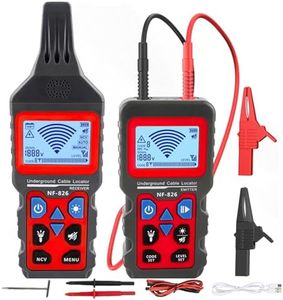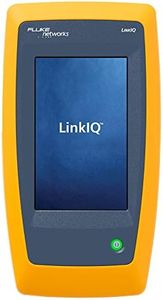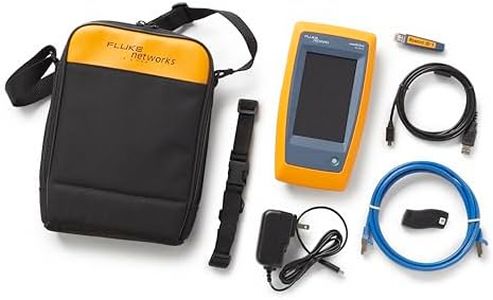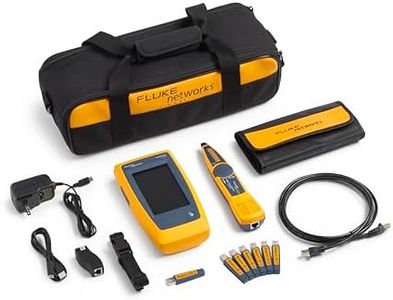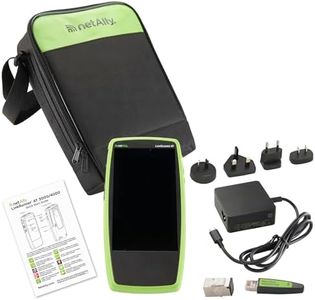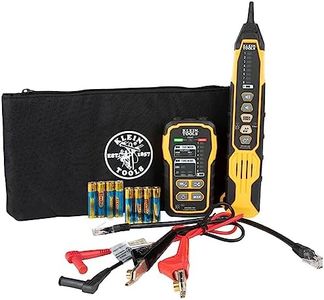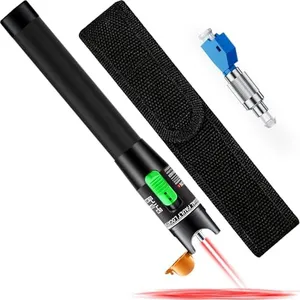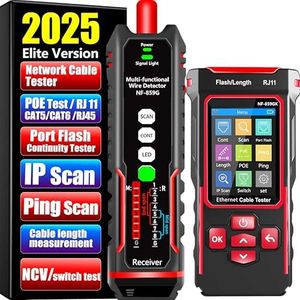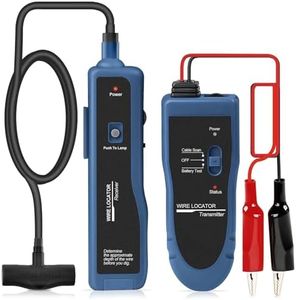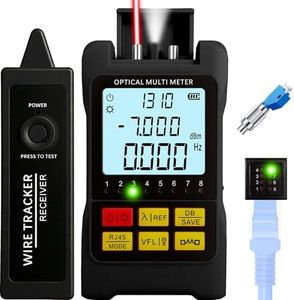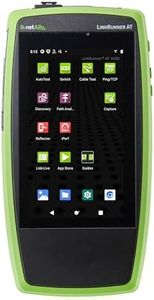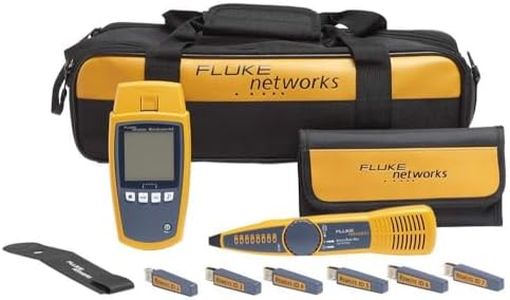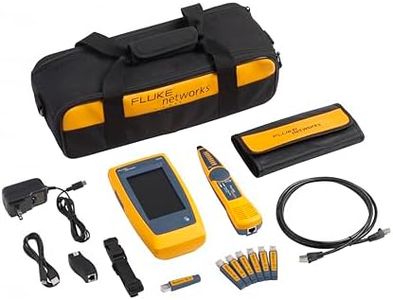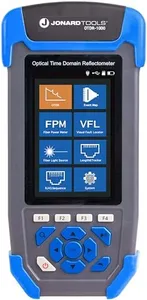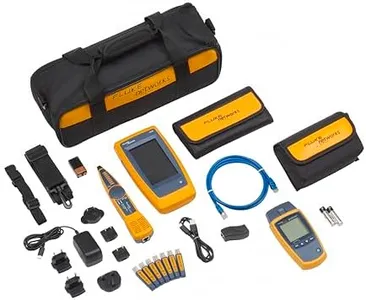10 Best Network Cable Testers 2026 in the United States
Our technology thoroughly searches through the online shopping world, reviewing hundreds of sites. We then process and analyze this information, updating in real-time to bring you the latest top-rated products. This way, you always get the best and most current options available.

Our Top Picks
Winner
Fluke Networks LIQ-100 LinkIQ Cable + Network Tester
Most important from
90 reviews
The Fluke Networks LIQ-100 LinkIQ Cable + Network Tester is a robust tool designed for professionals who need to test and verify network cables effectively. It stands out with its ability to perform cable performance testing up to 10GBASE-T, making it suitable for modern networking environments that demand high-speed connections. One of its notable features is the comprehensive network diagnostics it offers, including IPv4 and IPv6 ping capabilities and the ability to identify the nearest switch, which can simplify troubleshooting efforts. Additionally, the Ethernet Alliance certified PoE verification ensures that users can accurately assess Power over Ethernet capabilities, which is crucial for devices like IP cameras and wireless access points.
The display provides useful information such as cable length and wire mapping, helping users quickly identify issues like opens or shorts. This can save time and enhance productivity on the job. Plus, it allows for the management of results and reporting via the LinkWare PC software, which is a handy feature for professionals who need to document their work.
The tester weighs 1.54 kilograms and may feel a bit bulky for those who prioritize portability in the field. While it's certainly durable, its size might not be as convenient for quick jobs or for carrying in a tool bag. The power source is a lithium-ion battery, which is included, yet users should be mindful of battery life during extended testing sessions.
Most important from
90 reviews
Fluke Networks LIQ-Duo, LinkIQ-Duo Cable, Wi-Fi, and Network Tester
Most important from
2 reviews
The Fluke Networks LIQ-Duo is a robust and versatile cable tester designed for professionals working with network cables, including Cat5e through 10GBASE-T. It combines cable testing with network diagnostics and Wi-Fi analysis, making it more than just a basic cable tester. You get detailed cable performance checks such as distance to fault, wire mapping, and toning, alongside network features like IPv4/IPv6 ping tests and nearest switch diagnostics that reveal port, VLAN, and speed info. It even verifies Power over Ethernet (PoE) classes and power levels, which is handy for ensuring your network devices get the right power safely.
The Wi-Fi testing supports Wi-Fi 6E, offering insight into nearby networks and channels, a useful trait for network troubleshooting in mixed wired-wireless environments. The tester is portable at about 2 pounds and powered by a single 9V battery, making it convenient for field use. Its bright color and solid build add to durability. While it's priced for professionals needing combined cable and network testing in one device, casual users might find it more advanced than necessary.
With its comprehensive functions and certified accuracy, the LIQ-Duo stands out as a strong choice for network technicians seeking a reliable tool for both cable and network level diagnostics.
Most important from
2 reviews
Fluke Networks LIQ-Duo-KIT, LinkIQ-Duo Cable, Wi-Fi, and Network Tester Kit
Most important from
104 reviews
The Fluke Networks LIQ-Duo-KIT is a versatile cable and network tester designed for professionals who need reliable and detailed diagnostics. It supports performance testing for cables up to 10GBASE-T, making it ideal for modern high-speed Ethernet networks. It checks wire maps, distance to faults, and also includes toning capabilities for locating cables. Beyond cable testing, it offers network features such as IPv4 and IPv6 ping tests and can identify the nearest switch details like IP address, port, and VLAN, which helps in troubleshooting network issues quickly.
A standout feature is its Ethernet Alliance-certified PoE verification, which not only detects the power class of connected devices but also performs load tests to ensure sufficient power delivery. Additionally, it supports Wi-Fi analysis up to the latest Wi-Fi 6E standard, providing useful data on networks, channels, and access points. The tester is battery powered (using a standard 9V battery) and weighs about 2.6 pounds, making it portable enough for field use while still being robust.
Its display and interface are user-friendly, though it might require some learning for those new to advanced testers. One minor drawback is the price, which tends to be higher due to its advanced features, and the need to replace 9V batteries occasionally. This kit is well suited for network technicians and IT professionals who require a comprehensive tool for both cable and network troubleshooting, especially in environments with fast Ethernet and Wi-Fi 6E deployments.
Most important from
104 reviews
Buying Guide for the Best Network Cable Testers
Choosing the right network cable tester is crucial for ensuring the reliability and performance of your network. A network cable tester helps you identify and troubleshoot issues with your network cables, ensuring that they are properly connected and functioning as expected. When selecting a network cable tester, it's important to consider various specifications to find the best fit for your needs. Here are some key specifications to consider and how to navigate them.FAQ
Most Popular Categories Right Now
